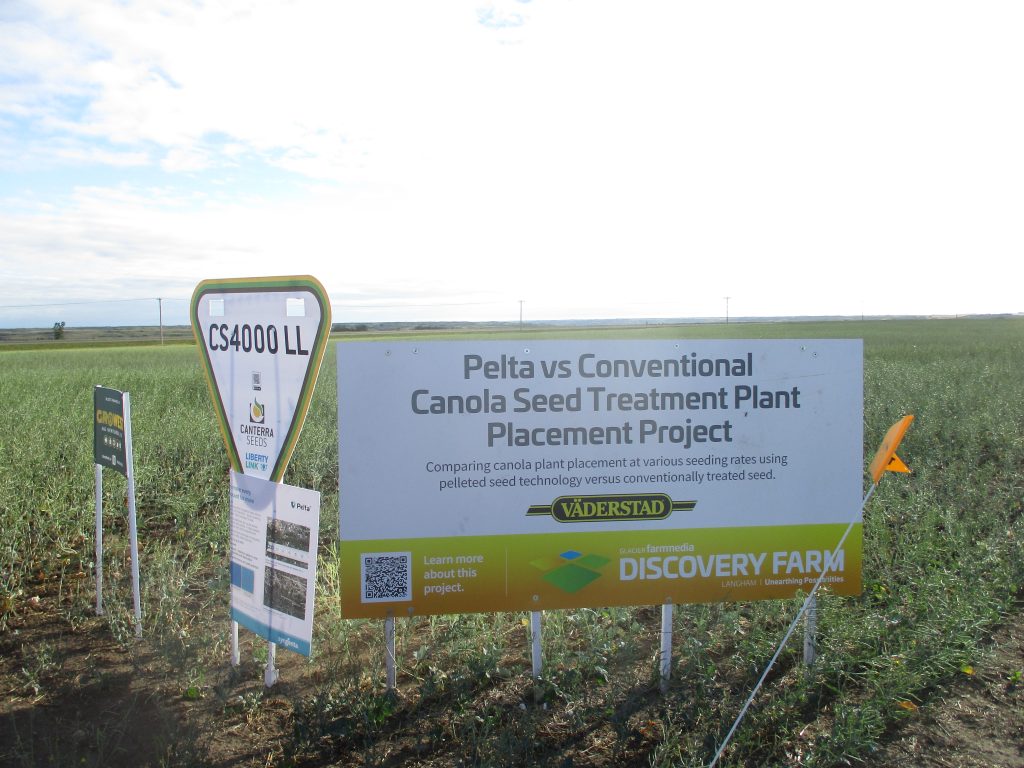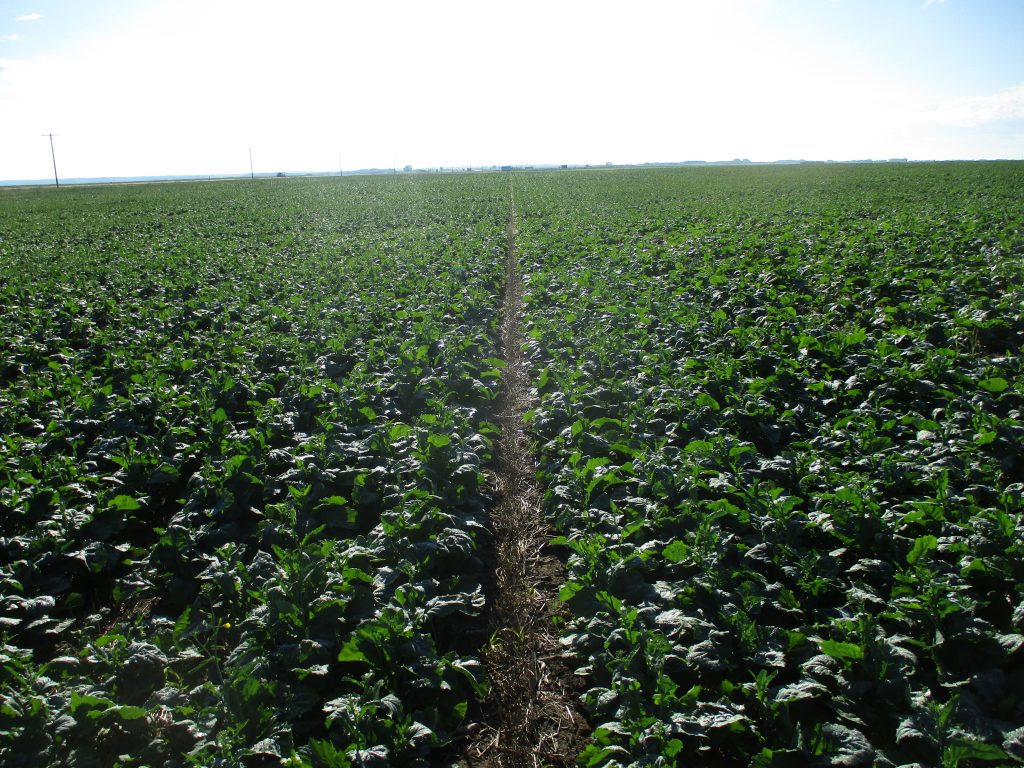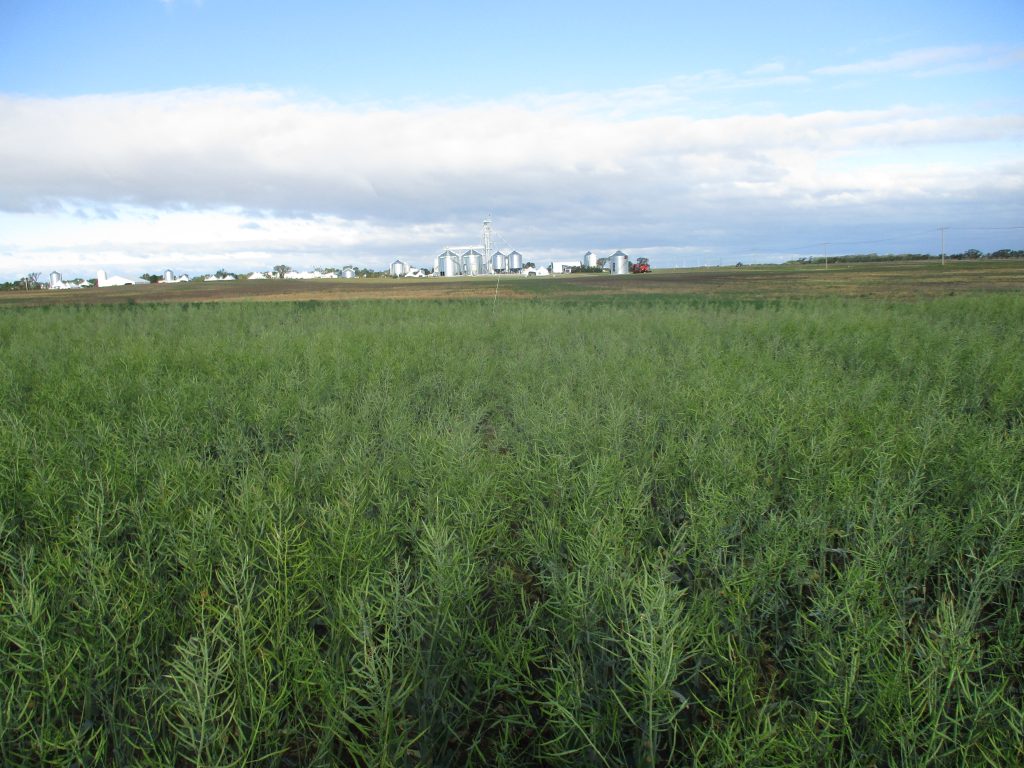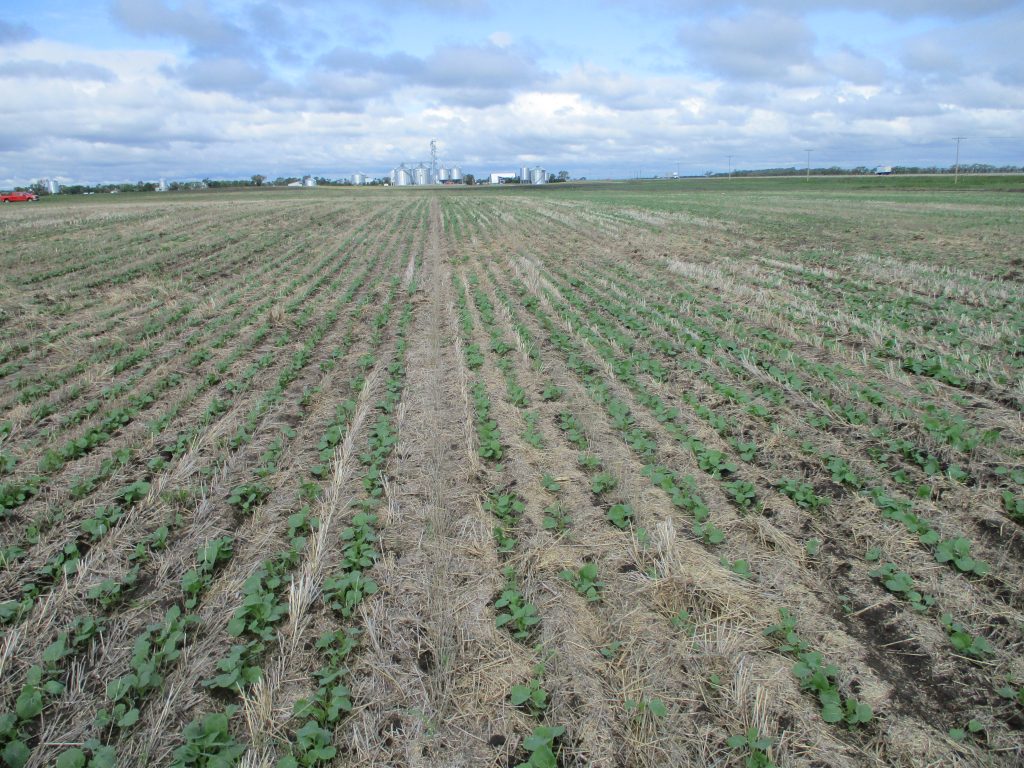The Väderstad Syngenta Pelta vs Conventional Canola Seed Treatment Plant Placement Project is a two-year project continuing from 2022 and will wrap up in 2023.
An accurate plant stand in canola is essential to maximizing the return on investment to the grower. This project aims to determine if using canola seed with Pelta technology provides greater metering accuracy, and subsequent greater accuracy in plant stand, with an air drill.
The purpose of this project is to compare the accuracy of canola plant stand and spacing, using a Seed Hawk air drill, of Syngenta’s Pelta seed treatment technology versus conventionally treated seed. Pelta treatment coats each seed so that each seed in a lot is the same size, whereas conventionally treated seed sizes may be highly variable. As the seeding rate of air drills is calibrated in pounds per acre, the consistency of seed size is paramount in the accurate metering of the correct number of seeds to obtain the desired plant stand. The goal of this project is to determine if the greater consistency of seed size results in a more accurate plant stand across three different seeding rates.
The drill used to seed the project is a Seed Hawk air drill featuring Fenix III metering technology which is among the most accurate in the industry. Seed Hawk openers feature the dual-knife Single Side Band (SSB) system in which the seed is placed 1.5 inches away from the fertilizer to ensure quick nutrient access while providing safety for the germinating plant. The seed variety used in this project is Canterra’s CS4000 LL which will be treated with both Pelta seed treatment and conventional seed treatment for the project comparison. Three different seeding rates will be used: 6, 8 and 10 seeds per square foot, which represents a range of seeding rates typically used by growers in Western Canada.




Access the Discovery Farm Langham Field Reports
The Field Reports are an annual overview of all activities that happened at Discovery Farm Langham during the growing season including demonstration research, events and knowledge transfer.